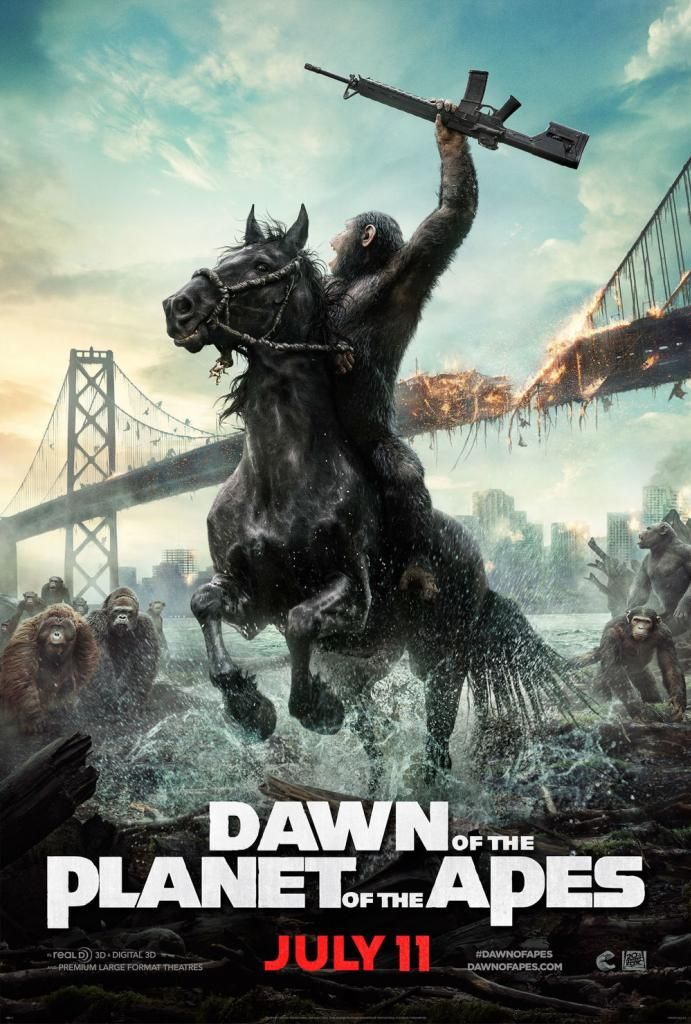From the movie's opening close-up shot of Caesar's angry, hate-filled eyes to its last, where those very same eyes have taken on a decidedly softer and more compassionate cast, 'Dawn of the Planet of the Apes' draws us irresistibly into its richly drawn post-apocalyptic landscape and timeless tale of survival, mutual distrust and conflict. Director Matt Reeves' sequel to 2011's 'Rise of the Planet of the Apes' is bigger and more action-packed yet maintained the same depth and emotional punch as its predecessor. DOTPOTA is proof that Hollywood can make a successful summer blockbuster bristling with spectacular visual effects without dumbing it down.
Picking up 10 years after the events of ROTPOTA, civilization is in shambles because the ALZ-113 (simian) virus had wiped out most of mankind, leaving only a handful of scattered survivors who were immune to it. Inevitably humans come into contact with ape nation again and mutual distrust and conflict ensue. Can humans and apes co-exist peacefully after years of scientific experimentation and oppression?
Just like the relationship between Caesar and Will (James Franco) in ROTPOTA, what makes DOTPOTA so compelling are the interactions between Caesar and a group of sympathetic humans in the guises of Jason Clarke, Keri Russell and Kodi Smit-McPhee. There is a timeless familiarity to the screenplay written by Mark Bomback, Rick Jaffa and Amanda Silver, but that doesn't matter because the movie has intelligence, verve and humanity to spare. Andy Serkis and the FX team did a great job in making the apes 'more human' than the humans themselves and the connection between Caesar and Clarke's Malcolm seems genuine and heartfelt. DOTPOTA is an entertaining thriller about hate and war, but like its predecessor its ultimate message is also one of love and hope for a brighter future. Then again, maybe not.
Grade: A


No comments:
Post a Comment